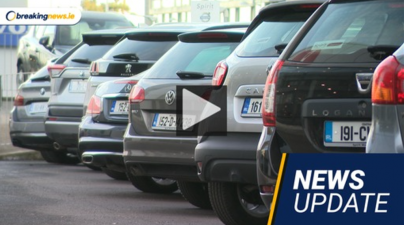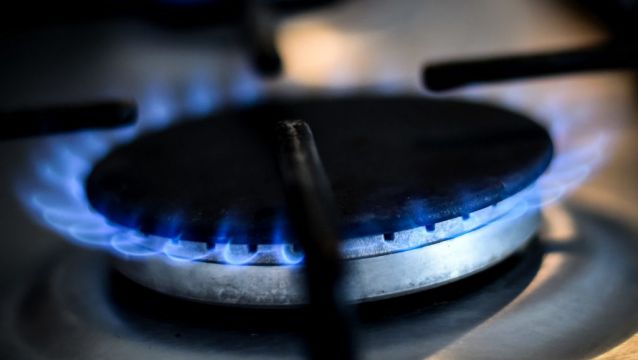Amid soaring energy costs, Taoiseach Micheál Martin has said that the Government cannot respond to help people with the cost of living crisis on a weekly basis.
Speaking on Today with Claire Byrne on RTÉ Radio 1, Mr Martin said that the issue must be looked at over a twelve-month perspective.
"It is not something we can respond to on a week-to-week basis. It needs a longer time frame," Mr Martin explained.
"So in that context, not just in Ireland but right across Europe, energy security and security of supply is a key issue.
"Particularly as Europe reduces its dependency on Russian gas and oil. And that's a clearly stated objective now of the European Union. Countries like Germany are very determined to do that."
Despite reports on Thursday, Mr Martin denied saying that Ireland could run out of winter fuel.
"I never said that. That is not the phrase I used at all," he said.
"I simply used the phrase 'energy security is an issue the Government is focused on and also that will mean we have to look at demand reduction strategies as well.
"A more informed approach over the medium term. A planned approach to this in so far as we can in a period of great uncertainty arising out of the Ukrainian war."
Concerns over energy costs
On the issue of prices, the Taoiseach said that the Government is "very concerned" about the rising cost of energy.
"Every week we are getting increases. And if we look at the cost of gas a year ago compared to today it is an exponential growth.
"Therefore we need a medium term strategy to address this.
"We have already allocated about two billion from the Budget onwards in alleviating pressures on people, but obviously the price rises have continued because of the war in Ukraine which has exasperated the situation.
"There are a number of things we must do as we plan ahead for the fiscal situation and the Budget next year.
"We have to target our resources to people who are hardest hit and to those who are suffering the most.
"We have to look after sectors like we did with the hauliers, agriculture where input costs are high."
Food security and panic buying
Despite the concerns, Mr Martin said he is confident there is a 90-day energy supply and there is no need for panic buying.
"The very important point is this. This is a longer haul than people might have anticipated because of the war in Ukraine.
"We already had problems coming out of Covid. Very fast rebound of the economy, imbalance between supply and demand and prices were going up.
"War in Ukraine happens and a very dramatic escalation in oil and gas prices as a result of that with consequential impacts on the wider economy."
As well as energy supplies, the Taoiseach said that food security is also an issue.
"I made that point last evening at the parliamentary party that the knock on from war in terms of grain, in terms of food issues nutrition could be further problems in developing countries which creates further migratory flows and further potential conflict in developing countries."
Business as usual
Mr Martin said that the ongoing war in Ukraine has meant that the Government must adapt with short term measures in dealing with the crisis.
"The war has created a situation where we have to stand back from business as usual and re assess the short term measures we have to take. But then double down on renewables.
"One very clear policy shift that is emerging from this crisis is the need to accelerate renewable energy.
"Not just here but across Europe and that is a policy position that has been adopted by the European Union.
"In the short term across Europe they are doing everything they can to get short term supplies in through LNG and other mechanisms to reduce their dependence on Russian gas and oil.
"We are not as dependent on Russian gas and oil as others are. Our primary imports are from the UK and Norway but nonetheless we do have to adapt. We are going to have to assess all of these issues."
On the measures of reducing VAT and excise duties, the Taoiseach said they are only temporary to deal with the current crisis while increasing carbon tax.
"The Carbon Tax gives revenue to enable us to do energy efficiency for example to do the retrofitting of homes," Mr Martin said.
"Which ultimately is a better way to get people to have lower bills well in to the future.
"We have already brought in about €2 billion in measures.
"If we didn't do it things would be much worse.
"All we can do is help to the best of our ability in terms of capacity in the Exchequer to support people in this exceptional period."
However, Mr Martin echoed the statement from the Minister for Finance that the Government cannot do everything to reduce costs for people.

"We need in future allocation of measures and resources that have to be targeted to people most in need. To households under most pressure.
"If you look at the increase in the fuel allowance that we have already brought in. It has been quite significant. But I think we have to go further on that and perhaps expanding eligibility around the fuel allowance.
"Families with children that we would take steps through social protection to protect them and give them extra help.
"We have made significant progress in expanding the Hot Meal schools programme. I do support that as an issue."







